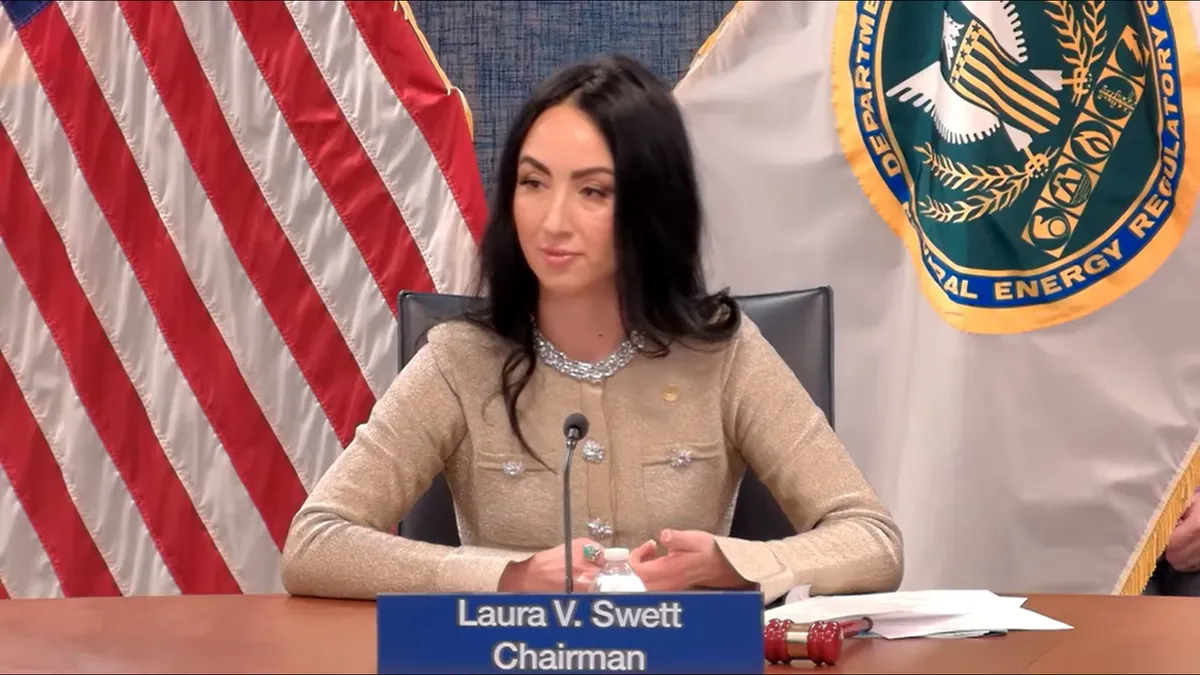Dive Brief:
- State utility regulators and ratepayer advocates are urging the Federal Energy Regulatory Commission to reject a Midcontinent Independent System Operator petition that asks the agency to declare that "unsolicited" long-range transmission planning monitoring and evaluation is outside the scope of its market monitor’s duties.
- Market monitors from MISO, the PJM Interconnection and ISO New England said transmission planning and market oversight is linked, according to filings on Friday at the agency. “It is difficult to conceive of a coherent argument that transmission planning does not affect MISO’s markets and services,” Potomac Economics, the grid operator’s independent market monitor, or IMM, said in a filing.
- However, MISO transmission owners such as Ameren, Duke Energy and Entergy support limiting Potomac Economics’ role in transmission planning. “Unsolicited monitoring and evaluation of MISO’s transmission planning activities are beyond the bounds of Potomac’s tariff-assigned responsibilities and as such, should not be entitled to compensation by MISO customers,” they told FERC.
Dive Insight:
MISO’s petition grew out of Potomac Economic’s criticism of MISO’s needs and cost-benefit analysis that underpinned its roughly $22 billion Tranche 2.1 transmission portfolio that was approved in December, according to the filings. The market monitor argued that MISO overstated its transmission needs and the benefits from its proposed project portfolio.
In its petition, MISO asked FERC to declare that unsolicited transmission planning and monitoring activities are outside the scope of Potomac’s engagement under MISO’s tariff and that the grid operator doesn’t have to pay for the activities.
MISO defined “activities” to mean unsolicited monitoring, evaluations and analyses of the grid operator’s long range transmission planning, as well as advocating for Potomac’s positions, while seeking reimbursement for the activities from MISO, a regional transmission organization that runs the grid and wholesale power markets in 15 states and part of Canada, from Louisiana to Manitoba.
“MISO, as an RTO, is already tasked with independently addressing transmission planning, expansion, and upgrade issues within the MISO region,” the grid operator said in its petition. “The IMM, like the PJM market monitor, acts much more in the nature of an independently retained auditor of market functions — not transmission planning.”
Potomac Economic’s “unsolicited” monitoring and evaluation totaled more than 600 hours between 2023 and 2024 at a cost of about $300,000, according to MISO.
MISO said it would hire a third party to monitor its long-range transmission planning.
MISO’s transmission owners support the petition, although they said the issue of an independent transmission monitor shouldn’t be addressed in the proceeding.
“Potomac’s unsolicited transmission planning and monitoring activities are outside the scope of the IMM’s contractually assigned tasks under the tariff,” the transmission owners said.
Americans for a Clean Energy Grid also backed MISO’s petition. Without a clear finding from FERC, the scope of the market monitor’s authority may continue to expand, which could interfere with MISO’s authority over transmission planning, the transmission-oriented advocacy group said.
However, MISO’s tariff requires the IMM to evaluate any “transmission provider or market participant actions governing or affecting any of [MISO’s] markets and services,” according to Potomac Economics.
“The question before the commission is solely: does transmission planning affect MISO’s markets or services? The unambiguous answer to this question is: YES,” Potomac Economics said.
Ten of 15 MISO state utility commissions asked FERC to reject the petition, saying they were concerned with the prospect of the grid operator trying to limit Potomac Economics’ activities.
“This has raised significant concerns for states, considering all states rely on the IMM’s independence to ensure fair market outcomes and regulatory accountability,” the Organization of MISO States said in a June 9 filing.
“To protect retail customers from unreasonable costs based on uneconomic top-down transmission investment decisions, we need the IMM to be able to evaluate and critique MISO’s assumptions and processes,” the Mississippi Public Service Commission said in separate comments.
Ratepayer advocates from Colorado, Illinois, Maryland and New Jersey also defended the market monitor’s role in transmission oversight. “To have an IMM that only performs ‘solicited’ work defeats the very purpose of the IMM and therefore the entire request for a declaratory order from MISO represents a retreat from the fundamental principles supporting IMM independence,” the Illinois Attorney General’s office said.
The Coalition of MISO Transmission Customers, the Resale Power Group of Iowa and the Wisconsin Industrial Energy Group also supported Potomac Economics’ role in transmission planning oversight. “MISO’s tariff authorizes the IMM to monitor and evaluate any MISO actions, including transmission planning, that affect MISO markets and services,” the groups said.
















